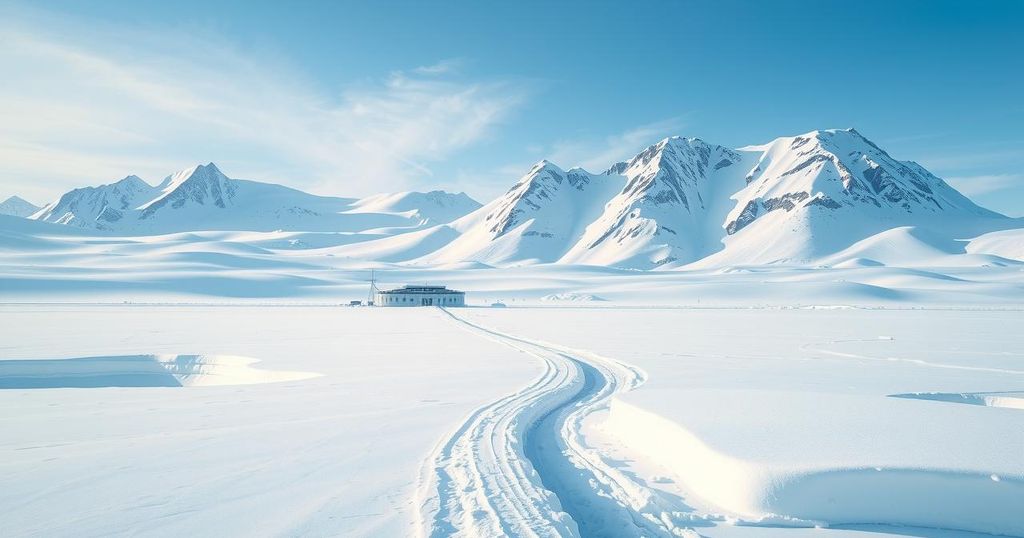South African Scientists in Antarctica Report Colleague’s Assault and Threats

Researchers at the South African Sanae IV station in Antarctica issued an SOS email detailing physical assault and sexual assault allegations against a colleague. The team fears for their safety due to the individual’s threats and aggressive behavior. The South African government confirmed the incidents and is considering actions to address the situation. Rescue operations pose significant challenges given the harsh Antarctic conditions. Historically, violent incidents have occurred in remote research stations.
A group of scientists stationed at South Africa’s Sanae IV research station in Antarctica has sent an urgent email seeking assistance due to allegations of physical assault, sexual assault, and death threats committed by a colleague. This team, isolated at the base approximately 100 miles from the ice shelf and over 2,600 miles from Cape Town, faces imminent challenges with the onset of winter storms, which are expected to last for another 10 months until December.
The South African newspaper, The Sunday Times, was the first outlet to report on this troubling incident, revealing that the email requested ‘urgent action’ due to a deteriorating situation. Within this correspondence, team members expressed their fears for their safety, citing recent violent behavior from the individual in question, which included physical assaults.
The government of South Africa has acknowledged that an assault occurred at the station, following earlier complaints regarding inappropriate behavior. Environment Minister Dion George, who oversees the country’s Antarctic program, has confirmed his awareness of the situation and indicated that he is considering possible courses of action to address the alarming circumstances.
In the email, the researchers described the accused’s actions as “deeply disturbing,” detailing an instance where a colleague was physically assaulted. The correspondence included concerns about threats made against staff, leading to an environment of fear. One scientist reported experiencing anxiety concerning their safety, leading to the urgent plea for intervention.
The South African Environment Ministry reported that all was in order when the research crew boarded their vessel, the SA Agulhas II, in February. A minister is overseeing the situation, and the alleged aggressor has cooperated with psychological evaluations and expressed remorse, committing to adhere to any recommended interventions. Reports indicate that the underlying conflict may have originated from a disagreement regarding task scheduling related to weather conditions.
Undertaking rescue operations in Antarctica poses significant challenges due to its extreme environment, despite South Africa’s access to an ice-capable ship and aircraft. Any potential evacuation would require navigating harsh weather conditions and distances of over 100 miles to the nearest research facilities. Prior incidents of violence at Antarctic bases have been recorded, highlighting the unique and sometimes dangerous circumstances researchers may face in this remote location.
South Africa has been conducting scientific research in Antarctica since 1959, typically utilizing small teams comprised of various specialists, including medical personnel, engineers, and physicists. The recent assertion for urgent assistance underscores the need for immediate solutions to ensure the safety and well-being of researchers stationed in such isolated areas.
This troubling situation at the South African research base in Antarctica raises critical concerns regarding workplace safety and the mental well-being of researchers in isolated environments. The acknowledgment and response from the South African government are essential in addressing the safety of scientists in such extreme conditions. Furthermore, the case highlights the complexities of managing conflicts and threats in remote research stations, necessitating prompt action and support for those involved.
Original Source: www.indiatoday.in






